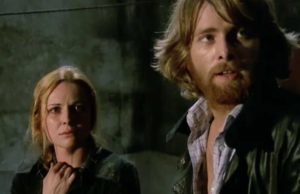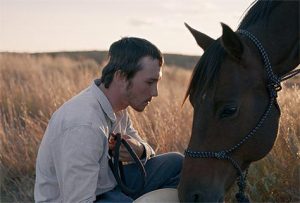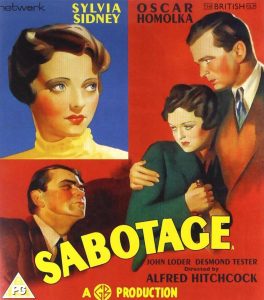By Armando Inquig
 “The Living Dead at Manchester Morgue”, a film that emerged during the wave of zombie films in the early to mid 70s following the success of George A. Romero’s “Night of the Living Dead,” is truly a hidden horror gem.
“The Living Dead at Manchester Morgue”, a film that emerged during the wave of zombie films in the early to mid 70s following the success of George A. Romero’s “Night of the Living Dead,” is truly a hidden horror gem.
Directed by Jorge Grau, the film is somewhat a departure from traditional zombie lore. It injects social commentary and ecological themes, and highlights the dangers of industrialization and the exploitation of the environment. The message is subtle, but the plot is layered with political and philosophical subtext, atypical for a zombie movie of that time.
The film follows George (played by Ray Lovelock), a London-based antique dealer, traveling to the countryside. On his way, he meets Edna (Cristina Galbó), who is also traveling to visit her sister. Their paths cross when Edna inadvertently backs her car into George’s motorcycle, damaging it. George requests Edna to give him a lift. ‘It’s the least you can do,’ George says sarcastically.
As they travel through the countryside, they begin to notice strange occurrences, such as dead animals and machines that appears to be causing ecological damage. They soon encounter zombies, but manage to escape and seek help. However the local police, led by Sergeant McCormick (played by Arthur Kennedy), are skeptical of George and Edna’s claims of a zombie outbreak.
Meanwhile, a scientist (played by Ángel del Pozo) is conducting experiments involving ultrasonic radiation, which he believes can be used to stimulate plant growth. But his experiments have unintended consequences, as they seem to be reanimating the dead and causing them to become violent zombies.
George and Edna navigate the treacherous terrain and confront not only the zombie outbreak but also the police who stayed on their tail.
The tension between the young protagonists and the establishment’s old guard is front and center throughout the movie, underscoring the generational conflict of the 1970s. In one memorable and humorous scene, George utters “Heil Hitler”, mocking the overbearing police officer, and highlighting the film’s political satire.
The cast delivers solid performances, particularly Ray Lovelock as the rebellious George and Cristina Galbó as the innocent Edna; their character dynamic initially full of annoyance and sarcasm, eventually turning into a deep bond through their shared adventure until the tragic end.
The cinematography is gritty and atmospheric. The makeup and special effects are impressive considering the film’s modest budget. The zombies are grotesque, with enough gore to satisfy genre fans. The film is patient in its pacing and allows characterizations to build up. The score by Giuliano Sorgini is haunting and atmospheric, with eerie synth melodies.
Overall, The Living Dead at Manchester Morgue is a standout, and under-appreciated, horror film that is thought-provoking and thrilling that make it a true classic of the genre.
“The Living Dead At Manchester Morgue”, also known as “Let Sleeping Corpses Lie” and “Don’t Open the Window,” is currently available to purchase on Blu-Ray.




